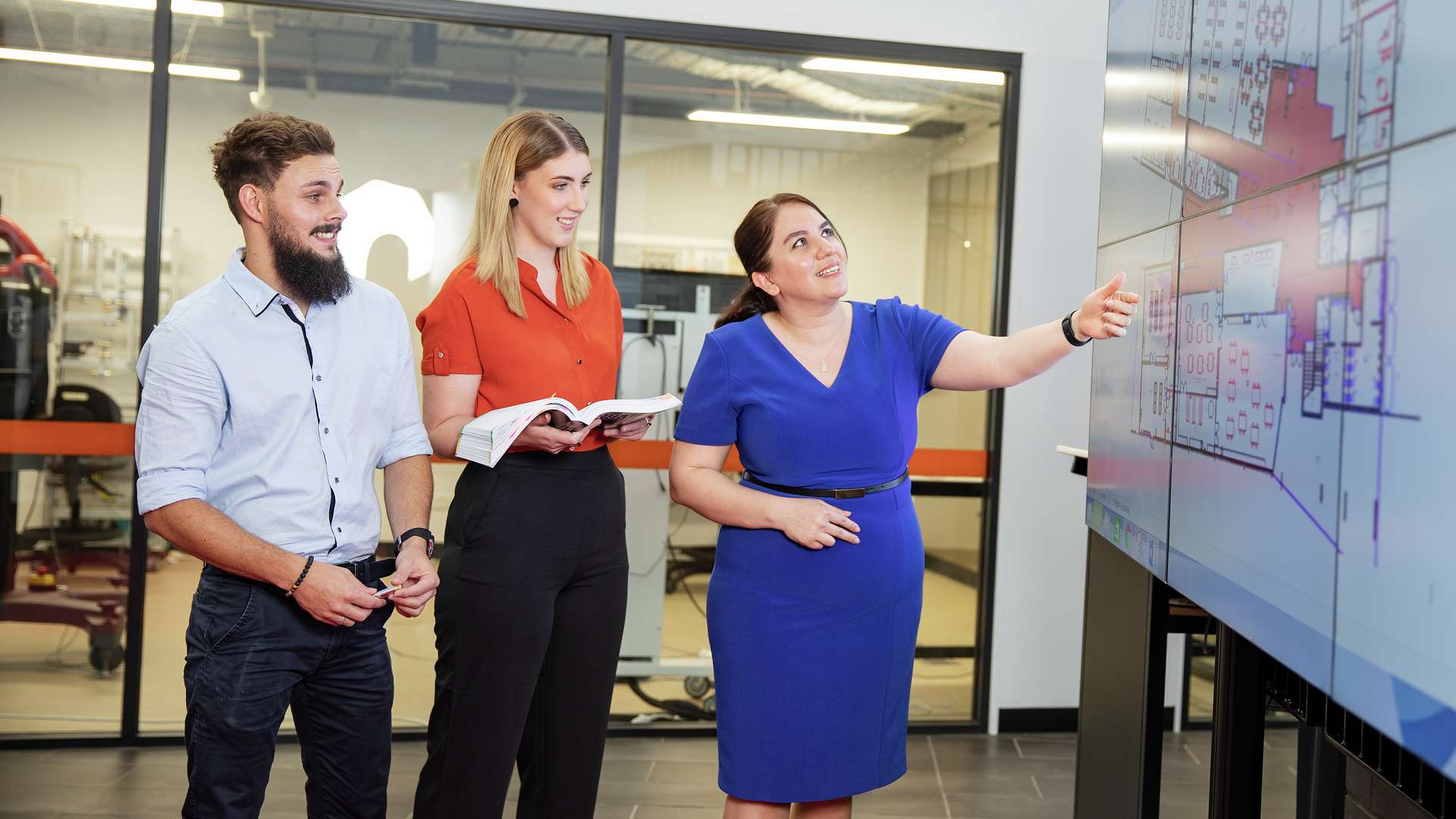Study the Bachelor of Engineering (Honours) (Civil Design) and Diploma of Building Design dual qualification and become qualified for a career as a civil engineer skilled in high-level engineering design and building design. If you take advantage of the units offered in all three terms, you can fast-track your studies and complete this course in four years.
This course equips you with skills and knowledge in building design factors such as codes and statutes, building sustainability, and contracts together with foundational technical content in civil engineering.
This course has a strong focus on learning in context, so you will apply theory to authentic scenarios throughout your course, including industry projects. One of the benefits of studying engineering at CQUniversity is our strong connections with industry practitioners who offer support through scholarships, guest lectures, work-integrated learning and cadetship opportunities.
As part of your studies, you will complete a major individual project that integrates both civil engineering skills and building design skills to confirm your ability to work as a civil engineer and a building design specialist.
